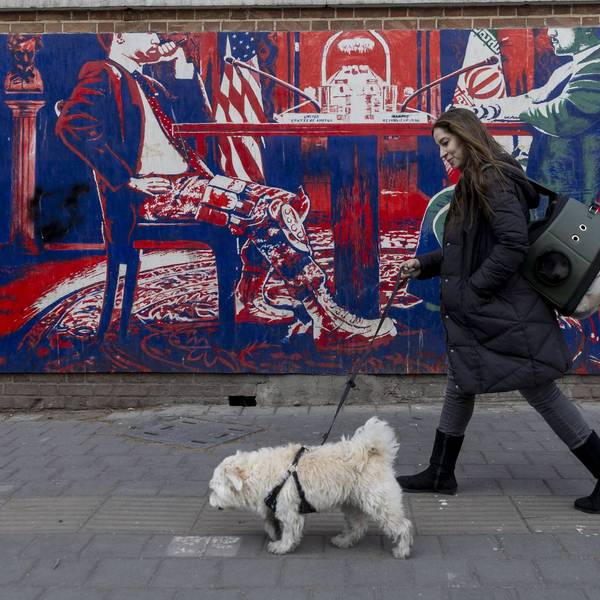The fallout from Saudi Arabia's recent mass executions continued to spread across the region on Thursday, when Iran's government accused the Gulf monarchy of attacking its embassy in Yemen's capital.
Iranian officials say a Saudi coalition bomb hit within 700 yards of its embassy in Sanaa, with shrapnel causing building damage and wounding guards. Backed by the United States, a Saudi-led coalition has been waging a relentless war in Yemen for nearly ten months, escalating air strikes Wednesday night.
" Saudi Arabia is responsible for the damage to the embassy building and the injury to some of its staff," foreign ministry spokesperson Hossein Jaber Ansari told the state-run IRNA. In response, Tehran announced that it is cutting off all commercial ties with Saudi Arabia.
The declaration comes amid an ever-worsening diplomatic rift involving numerous countries, as the Saudi government refuses to apologize for its mass execution on Saturday of 47 people, including Sheikh Nimr al-Nimr, a prominent Shia cleric and protest leader who has spoken out against wealth inequality and discrimination against the Shia community.
The executions were widely condemned. But in an interview with The Economist published on Thursday, Saudi Arabia's Deputy Crown Prince, Mohammed bin Salman, struck an unrepentant tone--claiming that those put to death were given fair trials that were public and open to the media.
"Contrary to his claims, we know that Sheikh Nimr and three protesters killed on Saturday--as well as the three juveniles now awaiting execution--had catastrophically unfair trials, where the authorities relied on torture and forced 'confessions,'" Maya Foa, head of the death penalty team at Reprieve, countered in a statement released on Thursday. "The defense lawyers were excluded from attending hearings, or even meeting their clients."
Amid mounting outcry and growing international protests, the administration of President Barack Obama has notably refrained from strongly condemning the killings. Beyond silence, however, many argue that the U.S. provides political cover for Saudi human rights abuses through its status as the top seller of arms to the Gulf state and long-standing military alliance.
Ali al-Ahmed, director of the Institute for Gulf Affairs and long-time friend of the late Nimr al-Nimr, told Common Dreams that the mass executions were likely an effort on the part of the monarchy to "silence dissent" and "deflect attention" from human rights abuses at home. They were carried out in the midst of Saudi Arabia's troubled economy and disastrous regional wars and conflicts, from Yemen to Syria, he noted.



